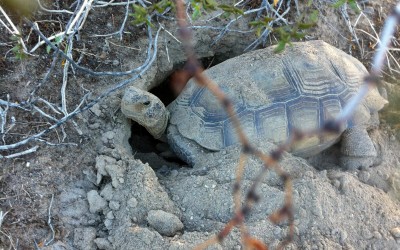 |
Thursday, March 14, 2019
How does math help restore wildlife communities? Try StallPOPd, our new interactive software app to Stall Growth of a Human Subsidized Predator and find out!Professionals who manage animals regularly face challenging decisions Veterinarians, zoo personnel, biologists, scientists, and resource managers sometimes share the professional duty to dispatch animals. In the case of resource... Category: In the News |
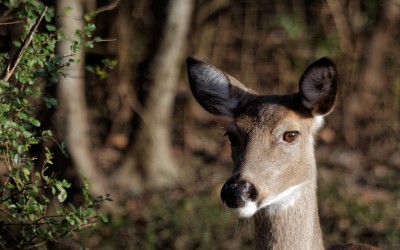 |
Thursday, February 21, 2019
Prion Hypothesis for CWD: An Examination of the EvidenceAs a wildlife disease ecologist, I’ve been asked my opinion on the scientific support for prions as the agent of chronic wasting disease (CWD). I have been studying CWD for two decades. The spiroplasma (bacteria) theory1 has been around... Category: In the News |
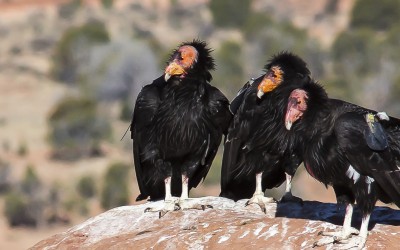 |
Thursday, January 10, 2019
What’s math got do with wildlife restoration? Try StaPOPd, our new interactive software app for Stable Population Dynamics and find out!Understanding Reintroduction Reintroduction of plants and animals by wildlife professionals into previously depopulated habitats is used to restore ecosystem function or maintain biodiversity. bison-1581895.jpg... Category: In the News |
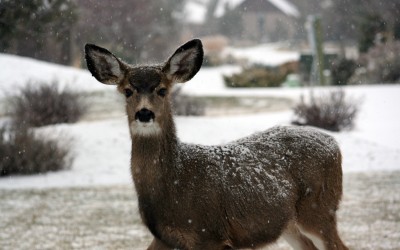 |
Monday, November 19, 2018
Tips for Safe Handling and Processing VenisonCorrectly handling your deer harvest can help keep you and your family safe when consuming venison. This is important not only from a food safety standpoint, but for diseases and toxins as well. Our goal is to help keep hunters and meat... Category: Wildlife 411 |
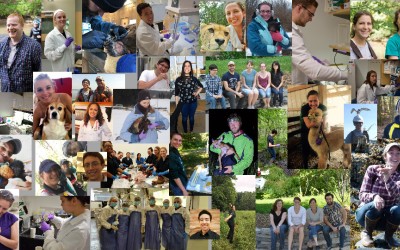 |
Tuesday, November 13, 2018
Where are they now?Since the wildlife health program first started in 2011, we have had many students come through our (virtual) doors- over 60 at last count. Our students have ranged from high school to post PhD/DVM, and they all come with unique... Category: Wildlife 411 |
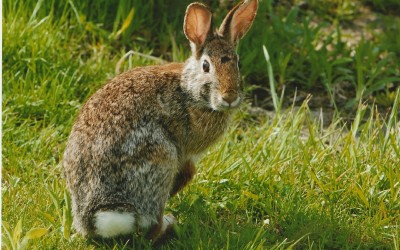 |
Wednesday, October 31, 2018
Positive Case of Rabbit Hemorrhagic Disease in OHThe Cornell Wildlife Health Lab received a message today from the National Wildlife Health Center (see below) that they have recently confirmed a case of Rabbit Hemorrhagic Disease (RHD) in a domestic rabbit in Ohio. This disease is rare... Category: Disease Watch |
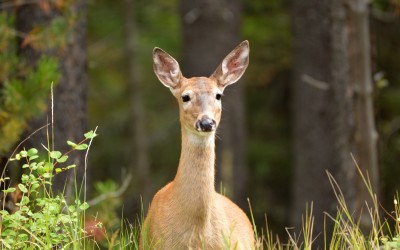 |
Tuesday, October 30, 2018
Citizen Science and Hunter SurveillanceHunters spend plenty of time out in the woods so they are great resources for spotting something abnormal or out-of-place with wildlife. As the various hunting seasons are happening now or soon approaching, extra eyes in the field are... Category: Wildlife 411 |
 |
Thursday, September 20, 2018
What’s in YOUR freezer?Most of us have forgotten bags of vegetables and mystery meat “stuffs” hanging out in our freezers. Here at the CWHL we also have freezers full strange things, but we won’t be using them for dinner anytime soon. When the New York State... Category: In the News |
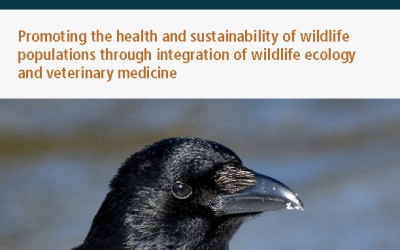 |
Tuesday, September 11, 2018
New York State Wildlife Health Program Annual ReportInterested in what the NYS Wildlife Health Program did in the last year? Check out some of our new research projects and catch up on some of the continuing ones, see what kind of surveillance we are doing and what we are finding,... Category: Wildlife 411 |
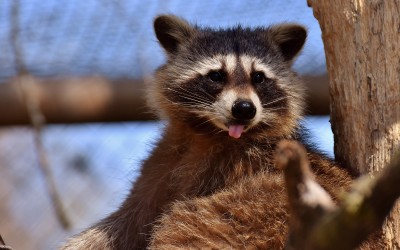 |
Friday, August 24, 2018
Is the Raccoon Zombie Apocalypse Upon Us? NopeWith the uptick in reports of raccoons acting strangely in urban areas, people are claiming some raccoon zombie apocalypse is imminent – it’s not. Reports like this “'Zombie-like' virus killing raccoons in NYC's Central Park” fuel the... Category: Wildlife 411 |
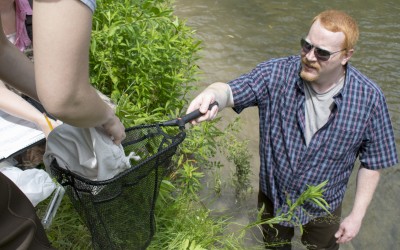 |
Thursday, August 23, 2018
What did you do on your summer vacation?Over the years, our veterinary students have been able to partake of some pretty unusual field projects during the summer. They have collared black bears with USGS, tracked timber rattlesnakes with the New York State DEC, investigated ... Category: Wildlife 411 |
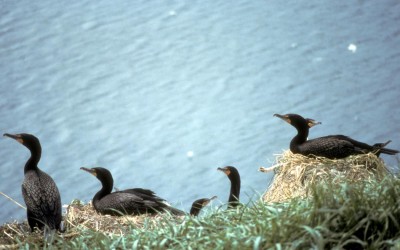 |
Thursday, August 23, 2018
Positive Cases of Avian Paramyxovirus in New YorkUpdate September 21,2018 The CWHL has confirmed several cases of Avian Paramyxovirus 1 in double-crested cormorants in New York. The birds have come in from a wide geographic area, from St. Lawrence to Erie County, along the southern... Category: Disease Watch |
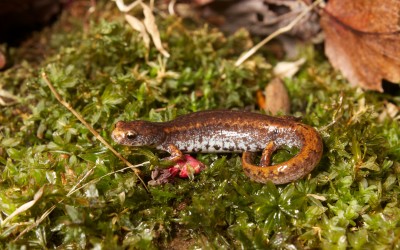 |
Monday, August 6, 2018
Saving the Unseen - eDNA: A new approach in conservation and surveillance for hard to find speciesThe desire to protect hard-to-find species from extinction is a challenge faced by many global conservation organizations. Many threatened or endangered species can be extremely difficult to identify in their natural environments due to... Category: In the News |
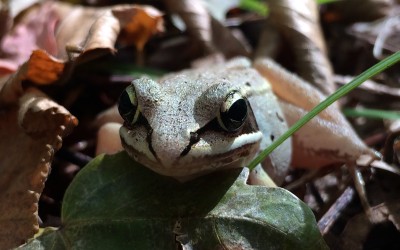 |
Tuesday, July 24, 2018
The Curious Case of Tadpole MortalityOne of the harbingers of spring that many people recognize is the sound of spring peepers calling from their wetlands for mates. Shortly thereafter, every still pool of water is laden with gelatinous egg masses, followed closely in time... Category: Case Files |
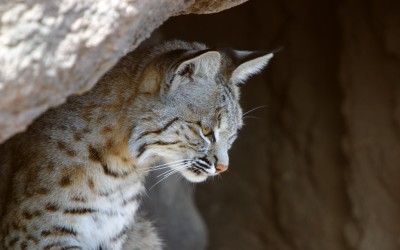 |
Thursday, June 14, 2018
Investigating Bobcat FeverConsidered an emerging disease, “Bobcat Fever” (Cytauxzoon felis) is caused by a blood parasite that affects cats. Bobcats are a known reservoir the organism, and in some cases infected domestic cats have died of the disease. Found... Category: In the News |
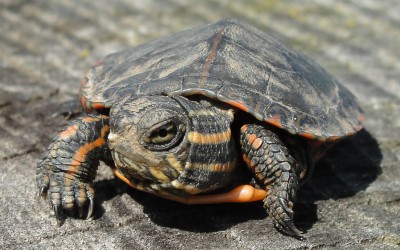 |
Wednesday, May 23, 2018
Let's Talk TurtlesMay 23rd is World Turtle Day! Celebrating turtles around the world and bringing light to the issues currently impacting this fabulous reptile; from habitat loss, conservation efforts, and what you may be able to do in your area to help... Category: Wildlife 411 |
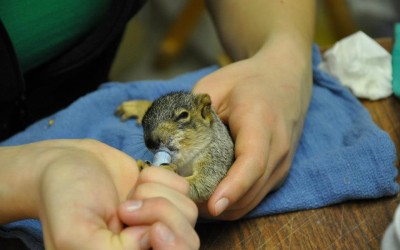 |
Monday, May 21, 2018
What’s Data Got To Do With It?What is a wildlife rehabilitator? In New York, a rehabber is someone with a state permit to care for sick, injured, orphaned, or displaced wildlife "with the goal of releasing a physically and psychologically healthy animal back into... Category: Wildlife 411 |
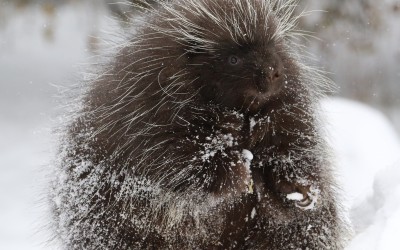 |
Friday, May 18, 2018
What NOT To EatThe Patient A young Red-Tailed Hawk was brought to a wildlife clinic for treatment. It was identified as a hatching year bird by the brown striped tail. If it is part of the 20% that makes it to the second year, it will molt the... Category: Case Files |
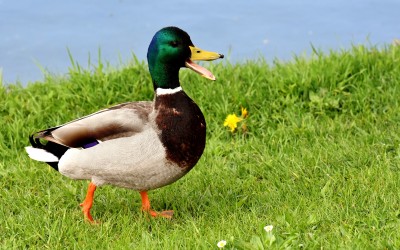 |
Friday, May 11, 2018
Confirmed Case of Duck Plague (Duck Viral Enteritis) in Onondaga County, NYWe have received a confirmed positive test for Duck Viral Enteritis from dead ducks in Onondaga County in upstate New York. Duck Viral Enteritis (DVE) is a serious disease affecting waterfowl species - ducks, geese, and swans. It is not... Category: Disease Watch |
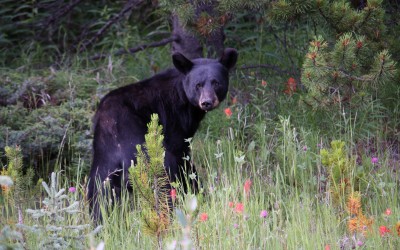 |
Monday, May 7, 2018
A black bear walks into a vet clinic...This may sound like the start of a cheesy joke, but in reality – a wild black bear that is sick is NOT going to stroll into the nearby vet clinic, describe its symptoms, and ask for treatment. Bears must rely on disease surveillance... Category: Wildlife 411 |


